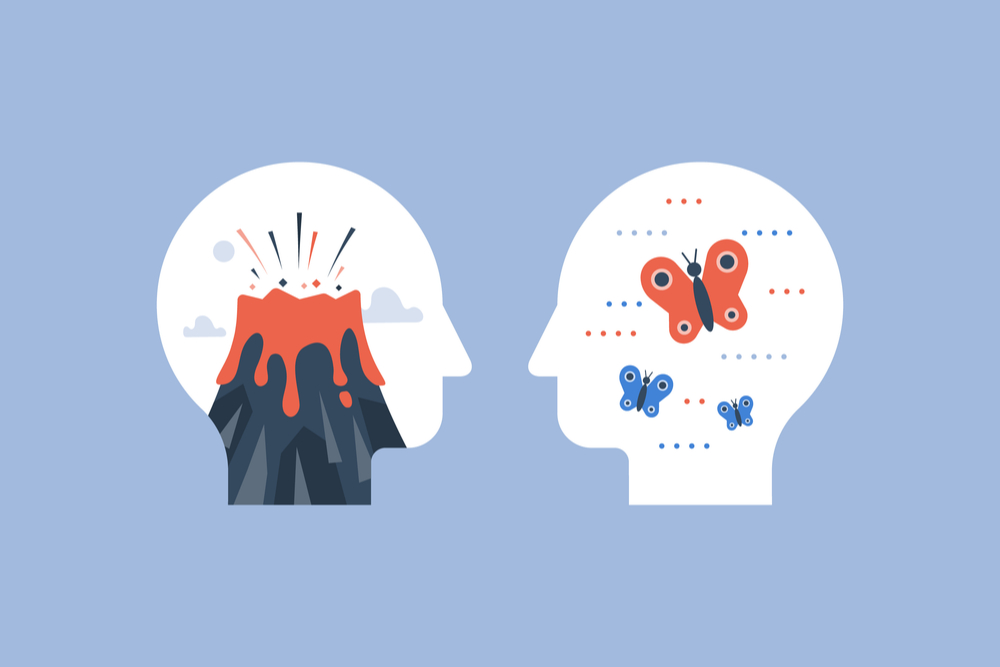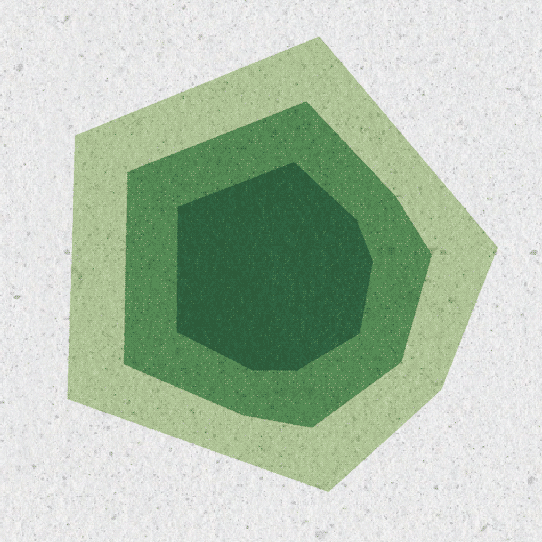What are some coping methods you use for panic attacks?
❇ What are some coping methods you use for panic attacks?
Hello everyone! I hope you're all doing well. A panic attack is a sudden episode of intense fear that is characterized by unexpected and debilitating tension. Panic attacks can be frightening and overwhelming and have physical as well as emotional symptoms like difficulty breathing, sweat, chest pain, or a feeling of detachment from reality or ourselves. Have you experienced a panic attack in the past? Did you use a coping method to cope with it?

@VickyP Thanks for this post Vicky! I think it's helpful to see different tactics and strategies when dealing with something as frightening as a panic attack. 
When I'm in the middle of a panic attack, I focus on my breathing. I keep gifs like this...

saved on my phone so I can pull one up at a moment's notice. I've noticed that time is a blurry concept in the middle of an attack. Although I think I'm slowing my breath on my own, it turns out it is still too fast and too shallow. These animations help me stay at a steady and slow pace.
@SecretlyMe
I love calming gifs like that! I'm glad they help you better control your breathing and deal with panic attacks. Thank you for sharing this coping method with us, Secretly!


Yea I got a gift too KOMUSŌ. I haven't consistently tried it, but I'm gonna start. And I like the other post about noticing two smells
, noticing two sounds, noticing four things you can see. And noticing two things you can feel. I like it very much.
@VickyP I usually try to do something that will distract my mind, which can be challenging when you are having a panic attack. But with practice, this does become easier to do, although this tactic does not always work too well especially at night. Because there is not much you can do to distract yourself when trying to sleep, so at that time you could do breathing exercises. All methods of coping with anxiety are valid there is no right or wrong as long as you are safe.
Yep, haven't had one in a long time. I don't think I've ever had a way of getting myself out of it while it's happening. Once it pounces on me, I feel paralyzed. Usually my whole body is out of my control, sometimes I can move my hands. I like this thread, could be useful if I have one again. Thank you for making it and thank you to commenters for adding what helps you
@VickyP Hi Vicky! I enjoy using grounding techniques (listing 5 things I see, 4 things I feel, 3 things I hear, 2 things I smell, and 1 thing I taste) and after I ground from a panic attack I usually focus on self-care or call a friend immediately to have someone there to support me. <3 Thank you for posting this :)
@VickyP
(Cute profile gif...)
I have experienced panic attacks my whole life, another symptom is the "feeling" of neck swelling, week in the knees, like your feet are about to fail you...
I had many methods to deal with them like mind clearing, or counter with anger andrenaline (build up of adrenaline against the very panic attack actually helps in panic attacks)...
Now I am left with only one thing: ride them out or simply ignore and smile at them...
They all say meditate, I do meditate but alot of time people think of meditation as if its sitting down closinf ur eyes and doing yoa, it's not meditation is more then a yoga, it's the way of life we all meditate everyday waking up in morning doing exercises and stuffs, meditation is more then that.
Thanks! This helps a lot to know how people are coping.
I created a safe position on how I sit with my hands in a specific way. When I feel safe I did this often to create a memory.
Now if I have a panic attack I take a seat and fold my hands in that way and focus on my breathing. Seems to shorten the moment quite a bit
Breathing excerses / reminding myself that I'm safe
If my husband is around, his touch soothes me
and once when I was alone and an attack came on, my cat cuddling with me worked (it was the craziest thing, I called my husband and he came home as quickly as possible, just seemed like it was taking forever, but the moment my cat laid down next to me and snuggled in, slowly I began to breathe normal and feel safe.
I have PTSD. It took years to have me diagnosed, after xanax, and valium, and well, the list goes on. Sleep is getting better after finding the right doctor and years of therapy. And I was counselor. I help at the VA sometimes. Not easy, but it's not easy for them either. And like them, I have stared down the barrel of a gun. And found I am just not the type.
It took me a while to study and read when PTSD was first put in the DSM, thanks to the veterans of Vietnam who fought long and hard to get what was called battle fatigue (and many other name) recognised as a disorder. It is not, by the way, "shell shock" although there are similarities.
The panic attacks were so terrifyi8ng to me because then we just did not know much about them, or what to do. (Ok, another Rx....) Finally some long lost psychologists noticed what we now call "triggers." And veterans with PTSD are actually trained to try and recognize them. I had a continual flashback when I was just in the somnambulant state before you fall asleep. Things are blurry. You remind yourself to stay awake and alert. The internal battle goes on until you finally into a full blown panic attack. The room closes in. I see and hear the rotor blades and green panel in front of me, right there, in my room.
Finally, after what might even be years, I studied what the triggers were. And found them. The ceiling fan and the A/C panel that had blinking lights in my open closet door in that half-asleep state, brought on the flashback and panic attacks that followed. I rearranged the room, got off the benzos since I read at times they will actually bring on panic attacks (and depression), and went to the bathroom, out of the enivronment, and learned how to breath properly. Finding a real doctor also helped.
Several who have posted are so accurate about breathing and mainly, recognizing when you having an attack. Watch the thoughts that have long mental images with them, or memories that you want to resolve, but practically, never will. It creates that sprial....
I am doing ok, and I will continue to. I really try not bring up talking about the military because it embargoes the conversation. But just know that your attacks are so similar in a pattern to mine. There is nothing about war that makes the attacks that much different. I learned I deserve to have those feelings. They are mine. They belong to me. It really helps to share what I have learned from them. We had a forum for combat PTSD people (men and women) but the technical support faded when the contributions died. We helped a lot of very troubled people who I hope are still with us. This site has been such a friend for me.
The study of veterans who take their own lives at a rate of 22 a day showed the age breakdown. 64% of them were over 50 years old. But the younger guys are climbing fast. Take ownership of a panic attack and really work on climbing out. You are worth it.
Some good posts here. And a good thread. I will be watching.....lol
@Kurt789. I had a doctor tell me to physically shrug. She said it will help deactivate the fight or flight response.
@carefulPenny8025
I know about the shrug but it does nothing for the oxygen level. Some panic attacks are so deep it takes more than a shrug, for me anyway. But a shrug does work toward lowering the shoulders.
@VickyP I try to do deep breathing and at night I like to do meditation or yoga!
